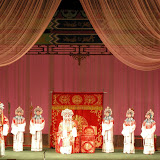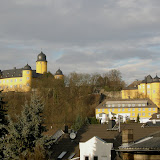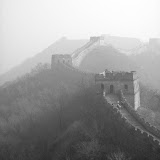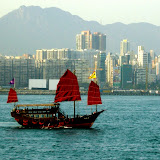记得刚刚上学的时候老师向我们描述中国是一个什么样的地方, 被重复最多因而也给我印象最深的是"中国是地大物博的文明古国和礼仪之邦"。在认字足够多后,爸爸送了我一套两册的少儿读物《上下五千年》,讲述从黄河流域起源的这个民族的历史变迁和文化传统,更加深了我对这种描述的认同、理解和随之而来的自豪。而对礼仪的具体概念,则是在日常生活的待人接物中, 甚至象吃饭的规矩这种小事中形成的。
孰料今天的中国国民需要政府颁布准则和公约来鼓励最基本的文明行为和礼仪 ,真是举世罕见,令人啼笑皆非。随着中国人因其不文明的举止而有望替代美国人成为世界上最不受欢迎的游客,恐怕政府明知这样的准则会遗笑大方,也不可不为了。 准则真是涉及了如何穿衣、说话、吃饭、上厕所,最讲脸面的国人难道不觉得这个丢尽了脸面吗?(内容在http://www.cnta.gov.cn/zhuanti/tssz-mb/zn.asp)也许是怕即便这样,有些人还是不能检讨自己的行为,国家旅游局又煞费苦心地编出了中国公民旅游常见不文明行为(http://www.cnta.gov.cn/zhuanti/tssz-mb/bx.asp), 叹为观止。我看这文件还是永远不要落到外邦人手里为妙,他们已经在质问"中国五千年的文明在哪里"。
,真是举世罕见,令人啼笑皆非。随着中国人因其不文明的举止而有望替代美国人成为世界上最不受欢迎的游客,恐怕政府明知这样的准则会遗笑大方,也不可不为了。 准则真是涉及了如何穿衣、说话、吃饭、上厕所,最讲脸面的国人难道不觉得这个丢尽了脸面吗?(内容在http://www.cnta.gov.cn/zhuanti/tssz-mb/zn.asp)也许是怕即便这样,有些人还是不能检讨自己的行为,国家旅游局又煞费苦心地编出了中国公民旅游常见不文明行为(http://www.cnta.gov.cn/zhuanti/tssz-mb/bx.asp), 叹为观止。我看这文件还是永远不要落到外邦人手里为妙,他们已经在质问"中国五千年的文明在哪里"。
看来礼仪之邦已然徒有虚名。走在故乡北京的街头,我感到深深的失落和悲伤,好象失去了一个自己内心珍藏多年的宝贝。一个归宿荡然无存了。礼仪的缺失其实只是表面。我相信只有一个从容、大度、有着笃定生活目的和价值体系的民族才会表现出自己与他人和环境交流时的高尚礼仪,而这都是我们现在所缺失的。传统中国的行为准则基础"仁、义、礼、智、信" 显然已经不是今日中国的行为基础。新加坡前总理李光耀先生曾建议将流行的"中国的崛起"的提法改为"中国的复兴",我想传统文化的复兴应该是中国复兴的核心。何日我们能看到吾国与吾民再次屹立于世界的东方,让全世界不仅看到我们的今天,并从今天看到我们五千年的文明历史?
When I first attended school, teachers tried to describe China to us. The most frequently heard and therefore most remembered description was "China: a nation of vast land and resources, of a long, splendid civilization, and of ceremony and propriety." As I learned enough characters to read, I got a book from my father titled Up & Down the Five Thousand Years. It was a narration of a people originated from the Yellow-River basin, who had witnessed the rise and fall of numerous dynasties and cultivated hundreds of schools of thoughts and philosophies that had combined laid the foundation of a deep cultural heritage. As a young descendant of such a people, I started to grow a strong pride inside. Speaking of propriety, the concept had become specific daily behavioral and moral rules governing everything down to the table manners.
 Who would have thought that today, Chinese citizens, descendants the world's longest civilization, have given the government no choice but to publish guidelines to encourage civilized behaviors, even the act would obviously become a joke to the rest of the world. Due to their crude behaviors, Chinese are replacing Americans to become the most unwelcomed tourists internationally. The guidelines touch upon everything including how to dress, talk, eat and use a toilet. (Full text in Chinese at http://www.cnta.gov.cn/zhuanti/tssz-mb/zn.asp). Renowned for saving face by all means, my compatriots, don't you agree that this was a smash right on the face?! Perhaps for the fear that people would not naturally establish any connection between their own behaviorst and these guidelines, the government went on to publish a list of the most common uncivilized behaviors among the Chinese citizens. (Full text in Chinese at http://www.cnta.gov.cn/zhuanti/tssz-mb/zn.asp) I hope this list will never fall into any foreign hands. They are already asking where the five-thousand-year civilization is.
Who would have thought that today, Chinese citizens, descendants the world's longest civilization, have given the government no choice but to publish guidelines to encourage civilized behaviors, even the act would obviously become a joke to the rest of the world. Due to their crude behaviors, Chinese are replacing Americans to become the most unwelcomed tourists internationally. The guidelines touch upon everything including how to dress, talk, eat and use a toilet. (Full text in Chinese at http://www.cnta.gov.cn/zhuanti/tssz-mb/zn.asp). Renowned for saving face by all means, my compatriots, don't you agree that this was a smash right on the face?! Perhaps for the fear that people would not naturally establish any connection between their own behaviorst and these guidelines, the government went on to publish a list of the most common uncivilized behaviors among the Chinese citizens. (Full text in Chinese at http://www.cnta.gov.cn/zhuanti/tssz-mb/zn.asp) I hope this list will never fall into any foreign hands. They are already asking where the five-thousand-year civilization is.
Apparently, little is left but the undeserved reputation. Walking along the small lanes in Beijing - my hometown, I was struck by a deep sadness and disappointment, as if I had lost a treasure long cherished in my heart. A final home to return to had vanished. Absence of decent behaviors is only an expression. Under it is the loss of a calm and magnanimous attitude from a steadfast life goal and strong sense of security. These are what have been taken away from the hearts of the Chinese people over the past century. When commenting on the popular notion of "the Rise of China", Singapore's former prime minister, Lee Kuan Yew, asked:"Why not call it a renaissance, a return to a golden age when poetry, painting, clothes, music and drama flourished?" I do wish someday came the true renaissance of Chinese civilization and today's rise of an economic power lacking cultural and moral underpinning proved to be a painful but necessary prelude.
孰料今天的中国国民需要政府颁布准则和公约来鼓励最基本的文明行为和礼仪
 ,真是举世罕见,令人啼笑皆非。随着中国人因其不文明的举止而有望替代美国人成为世界上最不受欢迎的游客,恐怕政府明知这样的准则会遗笑大方,也不可不为了。 准则真是涉及了如何穿衣、说话、吃饭、上厕所,最讲脸面的国人难道不觉得这个丢尽了脸面吗?(内容在http://www.cnta.gov.cn/zhuanti/tssz-mb/zn.asp)也许是怕即便这样,有些人还是不能检讨自己的行为,国家旅游局又煞费苦心地编出了中国公民旅游常见不文明行为(http://www.cnta.gov.cn/zhuanti/tssz-mb/bx.asp), 叹为观止。我看这文件还是永远不要落到外邦人手里为妙,他们已经在质问"中国五千年的文明在哪里"。
,真是举世罕见,令人啼笑皆非。随着中国人因其不文明的举止而有望替代美国人成为世界上最不受欢迎的游客,恐怕政府明知这样的准则会遗笑大方,也不可不为了。 准则真是涉及了如何穿衣、说话、吃饭、上厕所,最讲脸面的国人难道不觉得这个丢尽了脸面吗?(内容在http://www.cnta.gov.cn/zhuanti/tssz-mb/zn.asp)也许是怕即便这样,有些人还是不能检讨自己的行为,国家旅游局又煞费苦心地编出了中国公民旅游常见不文明行为(http://www.cnta.gov.cn/zhuanti/tssz-mb/bx.asp), 叹为观止。我看这文件还是永远不要落到外邦人手里为妙,他们已经在质问"中国五千年的文明在哪里"。看来礼仪之邦已然徒有虚名。走在故乡北京的街头,我感到深深的失落和悲伤,好象失去了一个自己内心珍藏多年的宝贝。一个归宿荡然无存了。礼仪的缺失其实只是表面。我相信只有一个从容、大度、有着笃定生活目的和价值体系的民族才会表现出自己与他人和环境交流时的高尚礼仪,而这都是我们现在所缺失的。传统中国的行为准则基础"仁、义、礼、智、信" 显然已经不是今日中国的行为基础。新加坡前总理李光耀先生曾建议将流行的"中国的崛起"的提法改为"中国的复兴",我想传统文化的复兴应该是中国复兴的核心。何日我们能看到吾国与吾民再次屹立于世界的东方,让全世界不仅看到我们的今天,并从今天看到我们五千年的文明历史?
When I first attended school, teachers tried to describe China to us. The most frequently heard and therefore most remembered description was "China: a nation of vast land and resources, of a long, splendid civilization, and of ceremony and propriety." As I learned enough characters to read, I got a book from my father titled Up & Down the Five Thousand Years. It was a narration of a people originated from the Yellow-River basin, who had witnessed the rise and fall of numerous dynasties and cultivated hundreds of schools of thoughts and philosophies that had combined laid the foundation of a deep cultural heritage. As a young descendant of such a people, I started to grow a strong pride inside. Speaking of propriety, the concept had become specific daily behavioral and moral rules governing everything down to the table manners.
 Who would have thought that today, Chinese citizens, descendants the world's longest civilization, have given the government no choice but to publish guidelines to encourage civilized behaviors, even the act would obviously become a joke to the rest of the world. Due to their crude behaviors, Chinese are replacing Americans to become the most unwelcomed tourists internationally. The guidelines touch upon everything including how to dress, talk, eat and use a toilet. (Full text in Chinese at http://www.cnta.gov.cn/zhuanti/tssz-mb/zn.asp). Renowned for saving face by all means, my compatriots, don't you agree that this was a smash right on the face?! Perhaps for the fear that people would not naturally establish any connection between their own behaviorst and these guidelines, the government went on to publish a list of the most common uncivilized behaviors among the Chinese citizens. (Full text in Chinese at http://www.cnta.gov.cn/zhuanti/tssz-mb/zn.asp) I hope this list will never fall into any foreign hands. They are already asking where the five-thousand-year civilization is.
Who would have thought that today, Chinese citizens, descendants the world's longest civilization, have given the government no choice but to publish guidelines to encourage civilized behaviors, even the act would obviously become a joke to the rest of the world. Due to their crude behaviors, Chinese are replacing Americans to become the most unwelcomed tourists internationally. The guidelines touch upon everything including how to dress, talk, eat and use a toilet. (Full text in Chinese at http://www.cnta.gov.cn/zhuanti/tssz-mb/zn.asp). Renowned for saving face by all means, my compatriots, don't you agree that this was a smash right on the face?! Perhaps for the fear that people would not naturally establish any connection between their own behaviorst and these guidelines, the government went on to publish a list of the most common uncivilized behaviors among the Chinese citizens. (Full text in Chinese at http://www.cnta.gov.cn/zhuanti/tssz-mb/zn.asp) I hope this list will never fall into any foreign hands. They are already asking where the five-thousand-year civilization is.Apparently, little is left but the undeserved reputation. Walking along the small lanes in Beijing - my hometown, I was struck by a deep sadness and disappointment, as if I had lost a treasure long cherished in my heart. A final home to return to had vanished. Absence of decent behaviors is only an expression. Under it is the loss of a calm and magnanimous attitude from a steadfast life goal and strong sense of security. These are what have been taken away from the hearts of the Chinese people over the past century. When commenting on the popular notion of "the Rise of China", Singapore's former prime minister, Lee Kuan Yew, asked:"Why not call it a renaissance, a return to a golden age when poetry, painting, clothes, music and drama flourished?" I do wish someday came the true renaissance of Chinese civilization and today's rise of an economic power lacking cultural and moral underpinning proved to be a painful but necessary prelude.













